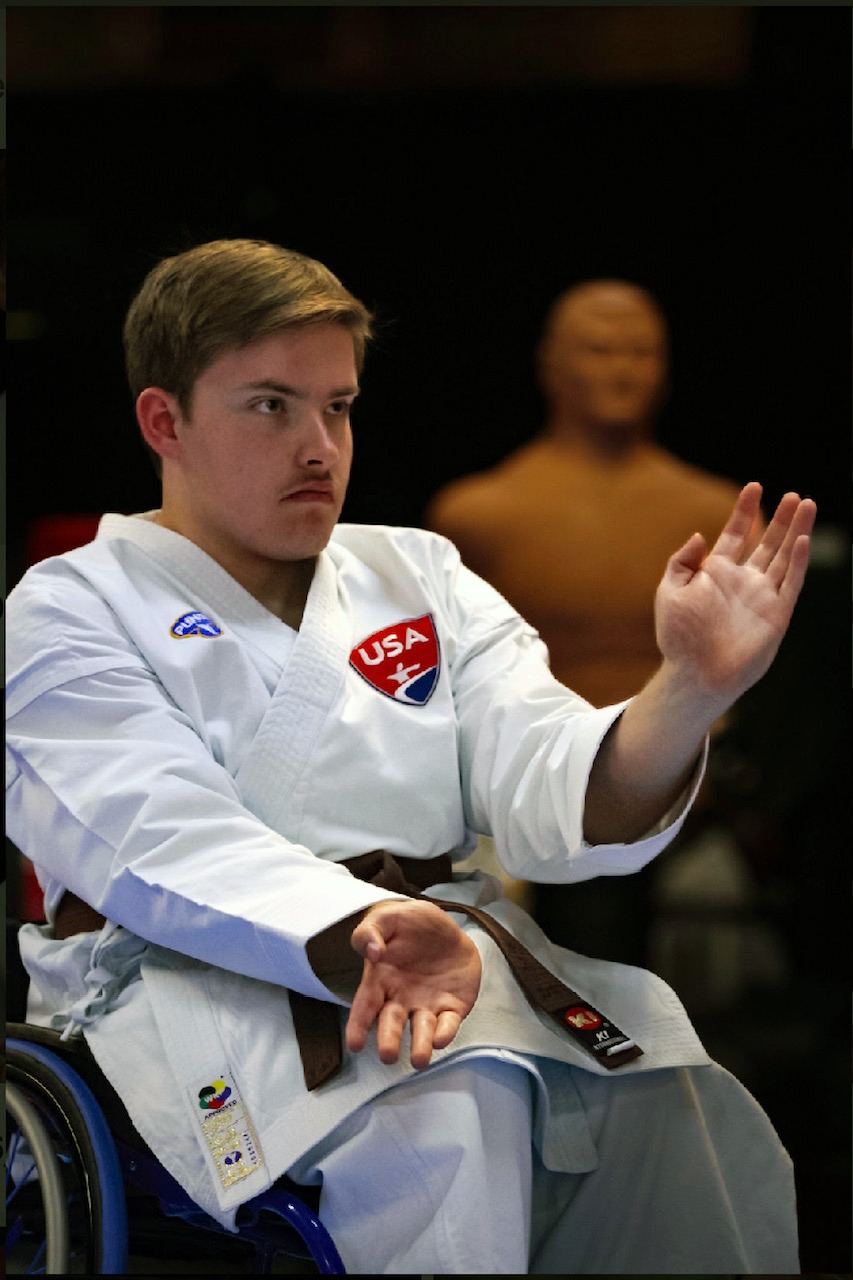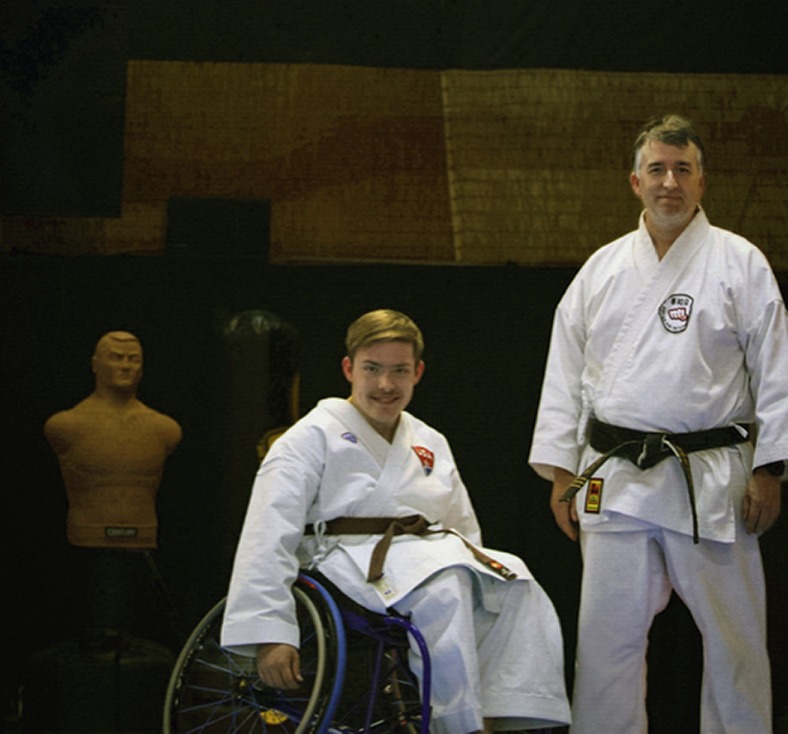First Male Wheelchair User Makes U.S. Karate Para Team, Eyes International Competition
Joel Westbrook’s journey to becoming the first male wheelchair user on the USA Karate para team began with a simple television show.
The 18-year-old from Georgia was watching “Kickin’ It,” a Disney Channel series about martial arts, when he noticed one of the instructors was in a wheelchair. That moment sparked a question that would change his life: How could he do karate from a wheelchair?

“I wondered to myself, how could I do that in a wheelchair? Or how can he do that in a wheelchair and not tear up the mat?” Westbrook says. “So I found karate here in Chattanooga [Tenn.], and he gladly took me on.”
Westbrook, who has spina bifida, began training at Green’s Karate under Sensei Corey Green, who had taught students with various disabilities, but never a wheelchair user. The instructor embraced the challenge, and Westbrook quickly learned that the wheelchair had to become an extension of himself.
“In karate, it does. It has to be. I have to be one with the wheelchair,” he says.
After setting his goal in 2017 to make the national team, Westbrook achieved that dream this past July. He now holds the distinction of being the first male wheelchair athlete on the USA Karate para team and currently trains at the brown belt level, just two ranks away from black belt.
The path to national competition wasn’t without obstacles. Early in his competitive career, Westbrook and his mother, Wendy, faced significant accessibility challenges at tournaments. They often had to call venues ahead of time to ensure wheelchair access, and on at least one occasion, carried his wheelchair up stairs when proper entrances weren’t available.
“If it wasn’t accessible, we would make it. We would find a way to make it happen because I was so passionate about going to karate competitions,” Westbrook says.
Those early experiences helped create change in the sport. According to Wendy Westbrook, local and national competitions now more commonly include wheelchair divisions, something that didn’t exist when Joel began competing.
“They had the division for intellectual, Down syndrome, autism and visually impaired, but they didn’t have a wheelchair division until Joel started coming along,” she says.
Westbrook’s breakthrough comes as he prepares for his first international competitions. He will represent the United States at the World Karate Championships in Cairo, Egypt, followed by the Pan American Championships in Lima, Peru, next May. These will mark his first trips outside the country.
“I’m just trying to get in the right mindset, as well. I’m trying to make sure I have all my moves correct,” says Westbrook, who acknowledged he faces established international competitors who have been competing at this level for years.
Beyond the competitive aspect, karate has provided Westbrook with confidence and practical self-defense skills. His mother notes that the training offers a safety element, giving him tools to protect himself in situations where being in a wheelchair might put him at a disadvantage.
Westbrook’s athletic pursuits extend beyond karate. He participates in adaptive baseball through the Miracle League of Chattanooga and trains with a certified adaptive trainer at the downtown YMCA, where he deadlifts more than 410 pounds despite being 5 feet tall when standing.
Currently pursuing an associate’s degree in social work, Westbrook plans to continue his education to become a child life specialist, working in children’s hospitals to help young patients understand medical procedures.
As a trailblazer in his sport, Westbrook hopes his achievement will encourage other wheelchair users to pursue karate. His advice to anyone facing barriers in pursuing their passion is straightforward: “Just focus on the ‘I cans’ instead of the ‘I can’ts.’ If you think something is too hard, just challenge yourself to try it and surprise yourself. You might be able to do it.”

The sport’s classification system follows International Paralympic Committee standards, positioning karate to potentially be part of future Games. Should that happen, Westbrook has his sights set on the 2028 Olympics and Paralympics in Los Angeles.
For now, he continues training intensively while balancing his studies, driven by the goal that started with a TV show and a simple question about possibility.
Those following Westbrook’s journey can find updates on his Facebook and Instagram pages under i Know Joel
